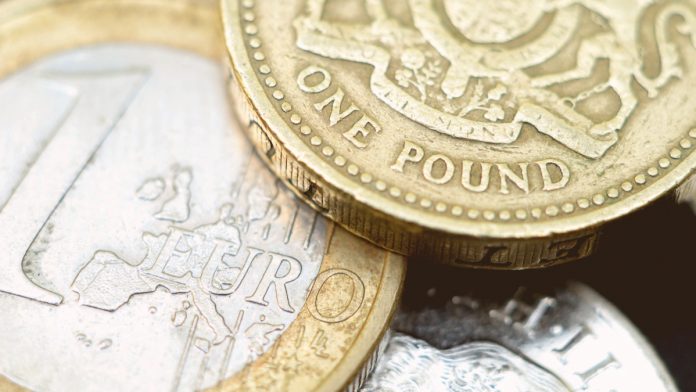The pound rallied over 5% higher versus the euro across 2019. With Brexit developments, the US — China trade war hitting Germany’s economy hard, further ECB easing and a new European Bank President the past year has been a volatile year for the pair.
The pound rallied versus the euro in the first quarter of 2019, reaching a high of €1.1801 in March, before slumping across the second and third quarters, striking a nadir of €1.0639 in August. This was the lowest level that the pound euro exchange rate had traded at since the financial crisis in 2009. The pound rebounded off the mid €1.06 low to rally into the year end. The pair hit a high of €1.2082 in December, a level not seen since July 2016, before closing the year comfortably above €1.17.
Brexit, Brexit, Brexit
Brexit has been the unquestionable driver of the pound across 2019. Sterling has acted as a fear gauge against a no deal Brexit. As fears of a disorderly Brexit from the European Union fluctuated across the year, so did the value of the pound. Sterling rebounded nearly 10% across the latter half of the year, hitting a 3 year high following a landslide victory for the Conservative Party in Parliamentary elections on 12th December. The 80-seat majority won by Tory leader Boris Johnson meant that the Withdrawal Bill was quickly ratified in Parliament. The UK is set to leave the EU on 31st January.
Improved Brexit clarity lifted the pound. However, sterling was unable to hold the gains as Boris Johnson refused to extend the transition period beyond one year. The transition is a year long period within which the UK remains part of the single market and customs union. During this short time frame the UK and the EU will hold complex negotiations to attempt to agree a trade deal. If no deal is agreed the UK will leave the EU on WTO trade rules in a hard Brexit. Fears of a hard, cliff edge Brexit are expected to continue weighing on the pound across the start of 2020 and possibly through much of the year.
Trade, Germany and ECB
Concerns over the health of the eurozone economy have dominated for much of 2019. Slowing global trade amid the ongoing US — China trade war weighed particularly heavily on exporter nation Germany’s economy. The manufacturing sector in Europe’s largest economy slid deep into contraction. The German economy, however, narrowly avoided recession thanks to a resilient labour market and strong consumer sector.
Seasonally adjust GDP growth across 28 European countries reached 0.3% in the third quarter, confirming 1.2% annualised growth. Inflation remains lacklustre at just 1% growth year on year. The European Central Bank (ECB) President, Mario Draghi, cut the bank’s overnight lending rate and restarted the ECB’s bond buying programme in September, before he left the ECB in October.
New ECB President, Christine Lagarde said that the euro area remains weak in her first hearing before the European Parliament. Investors will be watching Christine Lagarde’s moves closely heading through the first quarter of 2020, particularly her efforts to get European governments on board to increase fiscal spending. With a phase one trade deal also on the way, the outlook for the global economy is improving which could help the German economy turn a corner and offer some support to the euro.
| What do these figures mean? |
| When measuring the value of a pair of currencies, one set equals 1 unit and the other shows the current equivalent. As the market moves, the amount will vary from minute to minute.
For example, it could be written: 1 GBP = 1.13990 EUR Here, £1 is equivalent to approximately €1.14. This specifically measures the pound’s worth against the euro. If the euro amount increases in this pairing, it’s positive for the pound . Or, if you were looking at it the other way around: 1 EUR = 0.87271 GBP In this example, €1 is equivalent to approximately £0.87. This measures the euro’s worth versus the British pound. If the sterling number gets larger, it’s good news for the euro. |





